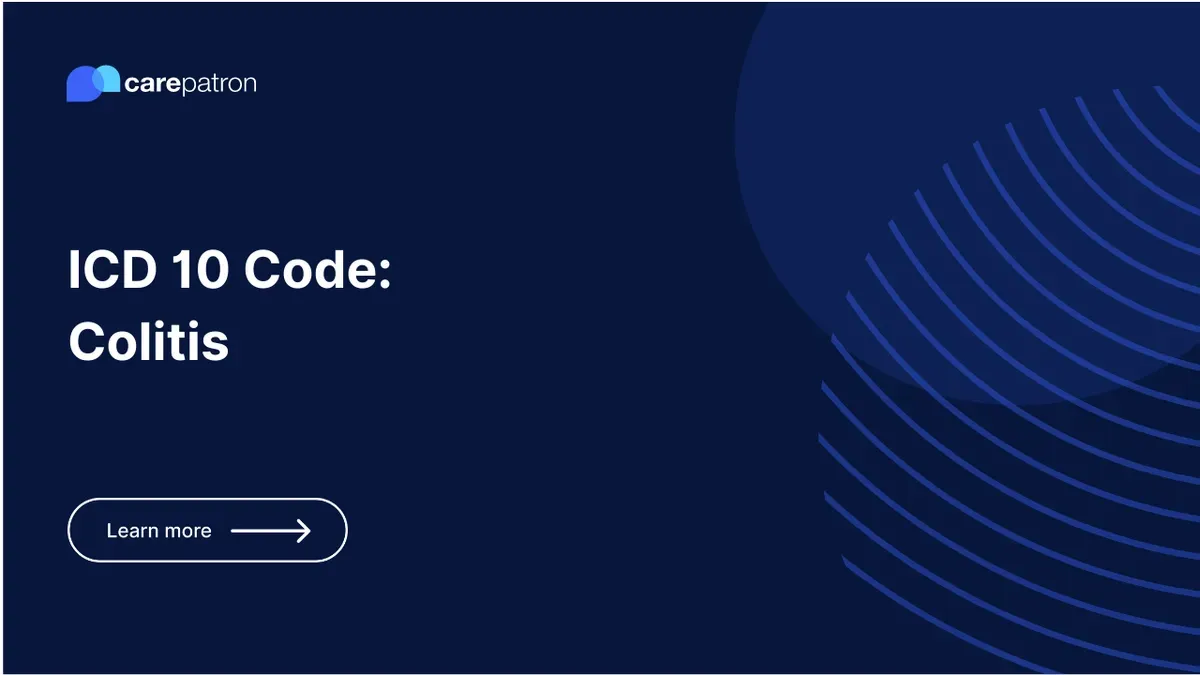
Colitis ICD-10-CM Codes
Learn about ICD-10 codes used to diagnose colitis and enable healthcare providers to record and communicate information about the condition accurately.
Use Code
Commonly asked questions
The ICD-10 code for colitis is utilized to classify different conditions that result in inflammation of the colon. Healthcare providers employ these codes to accurately document the patient's diagnosis and monitor their progress throughout the course of treatment.
Mild cases can be managed with medications like anti-inflammatory drugs or antibiotics, while more severe cases may require surgery. Common treatments for colitis include medications such as corticosteroids, immunosuppressants, and aminosalicylates.
Maintaining a healthy diet, including fruits, vegetables, lean protein, and whole grains, can help reduce inflammation. In certain cases, surgery may be necessary to remove affected portions of the colon or create alternative bowel openings.
A diagnosis code for colitis is a standardized alphanumeric code used to classify and document the condition of colitis. It provides essential information about the nature and location of the condition, aiding in medical management, insurance claims, and research.
EHR and practice management software
Get started for free
*No credit card required
Free
$0/usd
Unlimited clients
Telehealth
1GB of storage
Client portal text
Automated billing and online payments
